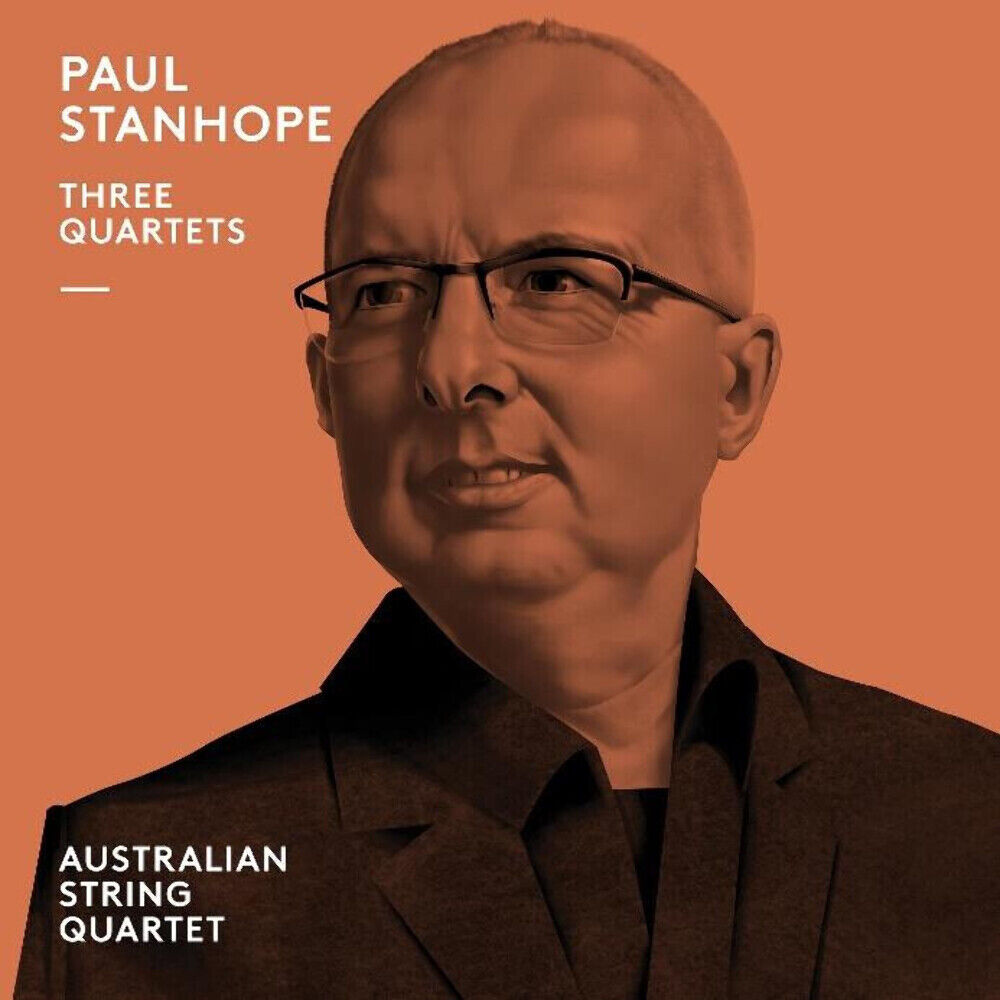Australian String Quartet
ABC Classics (ABCL0034)
The most prominent form of chamber music was, for over a number of centuries, the string quartet. In recent years, many composers have abandoned this medium, however, there still exists a rich oeuvre in this form, and from Australia we are blessed with a clutch of composers in this genre such as Peter Sculthorpe, Carl Vine, and now Paul Stanhope.
On this ABC release, we hear three of Stanhope’s string quartets, all written between 2008 and 2015. It takes a mature and perhaps sophisticated palette of colours for this composer to embrace his string quartet medium. In Stanhope’s hands, we have some very compelling moments for both listener and performer.
Taking a small motivic idea and creating a single movement quartet in a somewhat arch-like structure, the String Quartet No 1 (Elegies and Dances) reveals a compositional style of deep introspection. Whilst at times it laments, at other times melodic elements are bounced around.
The String Quartet No 2 was commissioned for Musica Viva Australia for the Pavel Haas String Quartet’s tour in 2009. The work reflects on the life of Pavel Haas, a Czech composer who was a particular exponent of Janacek, writing many string quartets himself. Tragically, he was murdered in the Nazi concentration camp of Auschwitz in 1944.
Maybe as a tribute to the former string quartet structures, this work is in four movements (Prelude, Flight, Dirge, and Scherzo). Stanhope has created a work which not only takes inspiration from this early twentieth century composer, but also reflects on the fate of refugees in new environments. To this end, this exciting work is full of energy, exuberance and optimism. With its hints of folk melodies, it can sit alongside some of the great quartets of the past, including those of Bartok.
From the Kimberley is the sub-title for Stanhope’s third String Quartet, in which he revisits the figure of Jandamarra, a West Australian indigenous giant, revered for becoming a resistance fighter in the early colonial years. His story was the subject of a major composition by Stanhope for large choir, orchestra, soloists, actors and dancers, and was first performed in 2014.
The three-movement quartet (Tracks and Traces, Dirrari Lament, and River-Run) is powerful for its emotive soundscape. The edgy first movement gives way to a threnody of reflective soulfulness in the second, finishing with a bubbling and fluid character in the third.
The Australian String Quartet gives a riveting performance on this recording. Pleasing to see is that this idiom is alive and has the capacity to speak to the heart.

